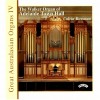Composers
Graeme Koehne (born 3 August 1956) is an Australian composer and music educator. He is best known for his orchestral and ballet scores, which are characterised by direct communicative style and embrace of triadic tonality. His orchestral trilogy Unchained Melody, Powerhouse, and Elevator Music makes allusions to Hollywood film score traditions, cartoon music, popular Latin music and other dance forms. He cites influences from "much-maligned and misunderstood" work by composers Les Baxter, Nelson Riddle, Henry Mancini and John Barry.
Koehne was born in Adelaide, South Australia. He completed his undergraduate and post-graduate studies at the Elder Conservatorium of Music, University of Adelaide, studying composition with Richard Meale.
In 1984, Koehne was awarded the Harkness Fellowship to work at the School of Music, Yale University. Here he studied with Louis Andriessen and Jacob Druckman. For two years of the fellowship he also took private lessons with Virgil Thomson in New York, whose influence is immediately discernible in the radically simplified, direct and anti-modern style of subsequent scores.[1]
He returned to Australia in 1986 and was appointed Lecturer in Composition at the Elder Conservatorium of Music.
He gained national attention at the 1992 Adelaide Festival of Arts when he was awarded the Young Composers Prize for his orchestral work Rainforest. Around this time, Graeme commenced his long and fruitful collaboration with choreographer Graeme Murphy, which included a children's ballet based on Oscar Wilde's The Selfish Giant and the full-length work Nearly Beloved.
As of 2005, Koehne is Head of Composition at the Elder Conservatorium of Music. Until recently he also chaired the Music Board of the Australia Council and was a Board Member of the Council.
Refine by search
view allBiography
Graeme Koehne (born 3 August 1956) is an Australian composer and music educator. He is best known for his orchestral and ballet scores, which are characterised by direct communicative style and embrace of triadic tonality. His orchestral trilogy Unchained Melody, Powerhouse, and Elevator Music makes allusions to Hollywood film score traditions, cartoon music, popular Latin music and other dance forms. He cites influences from "much-maligned and misunderstood" work by composers Les Baxter, Nelson Riddle, Henry Mancini and John Barry.
Koehne was born in Adelaide, South Australia. He completed his undergraduate and post-graduate studies at the Elder Conservatorium of Music, University of Adelaide, studying composition with Richard Meale.
In 1984, Koehne was awarded the Harkness Fellowship to work at the School of Music, Yale University. Here he studied with Louis Andriessen and Jacob Druckman. For two years of the fellowship he also took private lessons with Virgil Thomson in New York, whose influence is immediately discernible in the radically simplified, direct and anti-modern style of subsequent scores.[1]
He returned to Australia in 1986 and was appointed Lecturer in Composition at the Elder Conservatorium of Music.
He gained national attention at the 1992 Adelaide Festival of Arts when he was awarded the Young Composers Prize for his orchestral work Rainforest. Around this time, Graeme commenced his long and fruitful collaboration with choreographer Graeme Murphy, which included a children's ballet based on Oscar Wilde's The Selfish Giant and the full-length work Nearly Beloved.
As of 2005, Koehne is Head of Composition at the Elder Conservatorium of Music. Until recently he also chaired the Music Board of the Australia Council and was a Board Member of the Council.



